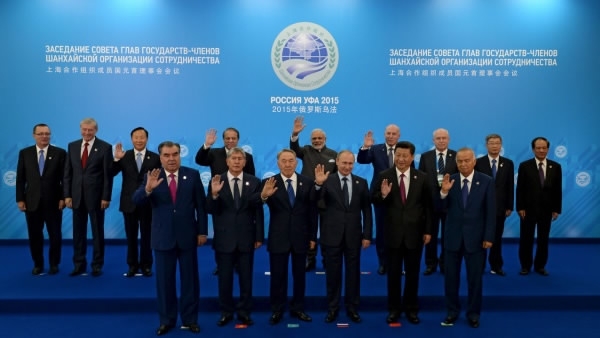
Business
15:11, 01-Dec-2017
Expanding goals of the Shanghai Cooperation Organization
CGTN's Aljosa Milenkovic

In 2001, the first meeting of the Shanghai Cooperation Organization (SCO) was held. Participating countries decided to create a loose framework for their basic security cooperation.
The primary goal at the time was fighting terrorism, as well as separatism and all forms of crime. China and Russia established themselves as backbones of the Organization with some Euro-Asian countries taking full membership, while others opted for so-called “observer status.”
In the beginning, SCO was labeled as a “NATO of the East,” a reference that member states dismissed from day one. The main feature that set the SCO apart from the labeled name was its voluntary and loose framework.
Expanding goals of the SCO
From the initial role of upholding security, SCO has evolved to be a multifaceted organization with goals of promoting economic cooperation, increasing trade levels, easing and simplifying cross-border business activities.
A number of times both China and Russia stated that their strategic partnership has the main goal of maintaining peace in the world and bringing development to all members. They have opposed the use of force, ultimatums and any other unilateral actions in the international relations, thus challenging predominant methods frequently used by some Western counterparts.
At the time, the SCO became a very important proponent of development for member nations, attracting a number of countries from a variety of regions to obtain an observer status.
Among them are Syria, Egypt, Armenia and many others that would like to benefit from this membership. After India and Pakistan gained full membership status in June this year, Iran’s membership request is on the table this time around.
After the discussions, which have mostly remained in the realm of academics about its ascending from current observer status, its membership will be high on the discussion agenda.
What are the Chinese and Russian interests in the SCO?
Before attending the meeting in Sochi, Chinese Premier Li Keqiang clearly stated that the most important goals for China are further liberalization of trade and economy, strengthening the alignment of developing strategies and strong mutual support at the world stage.
It is a part of what observers have described as the Chinese view of globalization, and that is something that China happily promotes through the SCO.
Russia, on the other hand, seems more concerned with security issues and fighting against terrorism and separatism is the most pressing issue in which SCO can help.
After Sochi gathering, which represents the end of Russia’s SCO rotational presidency, China will take over chairing position in the organization. This allows it to pursue more proactively goals stated by Premier Li Keqiang ahead of this year’s meeting.

SITEMAP
Copyright © 2018 CGTN. Beijing ICP prepared NO.16065310-3
Copyright © 2018 CGTN. Beijing ICP prepared NO.16065310-3